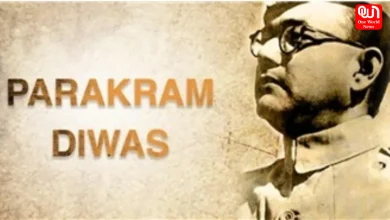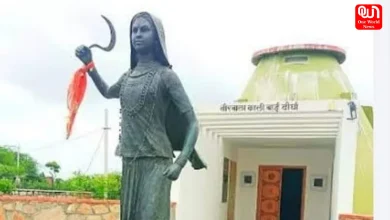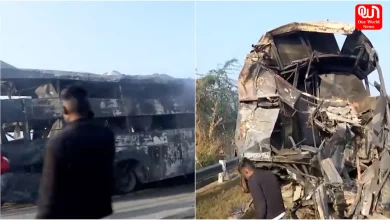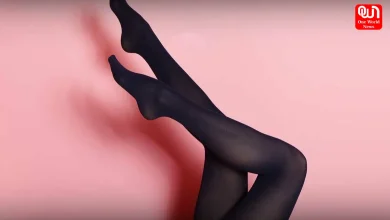‘Redefining Infotainment’

Broadcasting: The way ahead
All the segments of the Indian television industry are undergoing a major transformation, be it in terms of technology, regulation, business dynamics or market dynamics. SCREENS-2014, the 8th annual summit on Media & Entertainment, was held at the Le Meridien, laying emphasis on this and certainly breaking new grounds in the field of broadcasting media.

In spite of being the third largest television industry in the world, India as a country has a bleak or rather clouded future in terms of the up gradation of this sector. The government mandate of digitizing this television industry has led to the emergence of numerous protests all across the nation. The prime reason behind this unrest is the poor implementation of the govt. policies which were supposedly introduced to give relief to all the main segments of this industry- the cable operators, the DTH companies, the MSO’s and most importantly the subscribers (160 million households have televisions, across India).
Discussing on the improvement of this particular sector, ASSOCHAM organized the SCREEN-2014, 8th Annual Summit on Media & Entertainment in collaboration with Yes Bank, Big FM, Delloite, Radio Mirchi and many others. Hon’ble Minister of Information & Broadcasting, Government of India, Prakash Javadekar was kind enough to gratify this event with his presence and also promised to make quick and positive decisions which would take the television industry of the country to impeccable heights.
The Phase-I & II of the digitalization process have certainly not been an easy one, as hundreds of court cases have been filed by and against the cable operators as well as DTH companies, as either they have fallen short of fulfilling the government requirements or have refused to do so, completely. The session was opened by the first speaker of the afternoon, Monica Tata (MD, HBO South Asia). She insisted that the digitalization was clearly an opportunity for the platform owners; they could invest more and more as it would benefit them in the long run. However, she marked that the constrained bandwidth has not allowed the DTH companies to grow and benefit from the whole process. The DTH is not yet available in the whole of the country, with the four metro cities also falling in that bracket.

The second speaker, Tony D’Silva, Group CEO (Media) Hinduja Group was indeed the most thought provoking panelist. He stated that the country had a long way to go and added that every cloud has a silver lining. He insisted that setting up the Set Top Boxes is not the actual process of digitizing the country, rather what it could do (wonders) is. The government not giving a specific date for the Phase III & IV of digitization to be completed is a major concern. In the state of Maharashtra, a household which paid Rs 150 for a month of cable T.V, now pays somewhere between Rs 230- 250 in respect to the emergence of DTHs’. He insisted on the industry to work together, a re-look at the licensing process is urgently required and most importantly TRAI needs to understand the ground reality, as all the guidelines are definitely progressive but the implementation of them have been weak rather poor. The definition of the success criteria is also a blur, reason being the reports are one-sided.
Next to share his views to an audience of around two-fifty delegates and media personals was CEO, Videocon DTH, Anil Khera. Starting with a buffet of statistics, he claimed that the real challenge for the I&B Ministry in the process of digitization is the fourth phase which will cater Set Top Boxes to the last 35-40 million of the total 160 million households having cable connections. Taxation was the main issue which Khera highlighted, bringing into awareness the plight of the six DTH companies in the country who have invested more than 20,000 crores in this sector and are only running in loses. He further added that the taxation policy in the country needed to be rationalized to bring in the much required revolution in the living rooms.
Ms. Roop Sharma, President, Cable Operators Federation of India (COFI) was without a doubt the most cheered speaker of the day, with majority of the audience being cable operators. She questioned the government on the so-called transparency which was promised in the process in digitization of the country in a smooth way. The absence of revenue generation, correct TRPs, full revenue for the pay broadcasters etc. displayed that the purpose had not been served, as expected. She concluded with a wish lists of the COFI which sated, some of the key points were:
– License/Registration for 10 years for Cable Operators like DTH and MSO
– Review and Regulation of Tariff Order, Interconnect Regulation, Qos etc.
– CAS type Revenue Share model to ensure a fixed minimum revenue to LCO per subscriber
– FTA-100%
– Pay TV-25%
– Ownership of Customer connection remain with LCO.
– Billing, Activation, deactivation of STB with LCO. Also CAF, SAF Forms with LCO.

Concluding the hour long discussion, the Session Chairman Parameswaran N, Principle Advisor (Consumer Affairs/ Broadcasting & Cable Services) TRAI was disappointed with the fact that none of the panelists mentioned about moving forward. He did believe that the rationalization of the taxation policies was an immediate requirement which would allow all the segments grow.
The chief guest at the auspicious event, Hon’ble Minister of Information and Broadcasting, Govt. Of India, Prakash Javrekar, highlighted the importance of understanding the need of the hour i.e. of generating good content for television in the country and curbing the issues of broadcasting, censorship and taxation. He further stated that the new government will be looking forward to making quality and smart decisions without any delay. With a firm feet he claimed that the new Prime Minister of India, Narendra Modi has directed all his Ministers to delete the word delay from there dictionaries and come up to work with good and positive approach.
There is a lot to be achieved in the field of I&B for a country like India which is considerably the most aggressively growing economies in the world of media. The last few years have been revolutionary of sorts, with more and more companies and organizations divulging into television. It has gone onto become the most sought after form of advertising in the country in today’s time.
Other dignitaries from acclaimed organizations of the country, Rajkumar Dhoot- (MP) Past President, ASSOCHAM, Sharad Dutt- Chairman, ASSOCHAM National Council, Umesh Upadhyay- Media Director, Reliance Industries Limited etc. also shared their experiences of the what Indian media was and what it has become, and definitely what is there in store for the future.
Picture Courtesy : Sameep Tawakley, One World News
Have a news story, an interesting write-up or simply a suggestion? Write to us at info@oneworldnews.in







